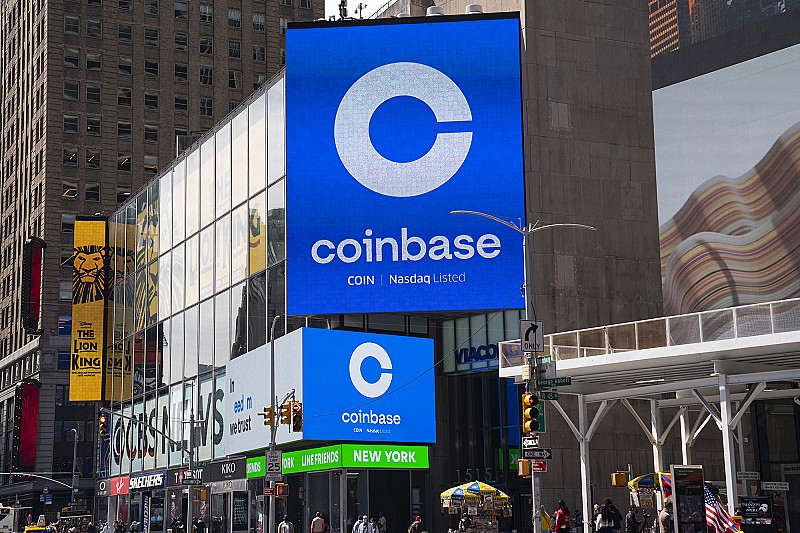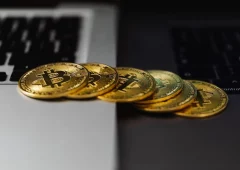Coinbase Returns to Hawaii After 7 Years as State Eases Crypto Regulations
14.08.2024 23:00 1 min. read Kosta Gushterov
Coinbase, the largest publicly traded crypto exchange in the US, has reestablished its presence in Hawaii after a seven-year hiatus.
This return is due to recent changes in state regulations that have simplified operations for crypto companies.
The state’s updated rules removed the Money Transmitter License (MTL) requirement, which previously presented a significant obstacle.
The regulatory change is part of the Digital Currency Innovation Lab (DCIL) project, launched in 2020 to explore the potential of digital currencies in Hawaii. The goal of these changes is to foster a more conducive environment for digital asset businesses.
Coinbase’s return follows Robinhood’s expansion into Hawaii in July, which also increased local access to digital financial services. Since Coinbase’s return, Hawaii residents can tap into a variety of services, including trading, streaming, and advanced trading tools.
The move has positively impacted Coinbase’s share price, signaling robust investor confidence.
-
1
NYSE Parent ICE in Talks for $2 Billion Investment in Polymarket Valued Up to $10 Billion
07.10.2025 16:00 2 min. read -
2
Changpeng Zhao Responds to Criticism, Highlights Binance Efforts to Shield Users
13.10.2025 15:00 2 min. read -
3
Strategy: Is it Undervalued or Overextended After Its Latest Bitcoin Buy?
14.10.2025 13:36 5 min. read -
4
Here’s How Crypto Could Help Nigel Farage Win the Next UK Election
09.10.2025 11:00 3 min. read -
5
Nasdaq Gets Its First Digital Gold Treasury
10.10.2025 20:00 1 min. read
Trump’s White House Expansion Draws Support from Crypto Industry
Several prominent figures and companies from the cryptocurrency and tech industries are reported to have contributed to the Trump administration’s new White House ballroom project.
Polymarket Confirms POLY Token and Airdrop, Prioritizes U.S. Relaunch
Prediction market platform Polymarket is preparing to introduce its long-awaited POLY token alongside an airdrop, signaling a new phase of growth as investor interest and trading activity surge.
Soft CPI Sparks Hope: Is the Fed About to Ease Up?
Fresh inflation figures out of the U.S. hint that price pressures are easing again, setting a calmer tone across financial markets – and giving crypto traders a reason to stay optimistic.
Trump Clears Changpeng Zhao, Citing “Unfair Treatment” Under Biden
In a move that has stunned the crypto industry and reignited debate over past regulatory actions, US President Donald Trump has granted a full pardon to Binance founder Changpeng “CZ” Zhao.
-
1
NYSE Parent ICE in Talks for $2 Billion Investment in Polymarket Valued Up to $10 Billion
07.10.2025 16:00 2 min. read -
2
Changpeng Zhao Responds to Criticism, Highlights Binance Efforts to Shield Users
13.10.2025 15:00 2 min. read -
3
Strategy: Is it Undervalued or Overextended After Its Latest Bitcoin Buy?
14.10.2025 13:36 5 min. read -
4
Here’s How Crypto Could Help Nigel Farage Win the Next UK Election
09.10.2025 11:00 3 min. read -
5
Nasdaq Gets Its First Digital Gold Treasury
10.10.2025 20:00 1 min. read
Coinbase is expanding its cryptocurrency offerings by introducing new digital assets to its trading platform.
Coinbase is once again setting its sights on tokenized securities, aiming to integrate traditional financial assets with blockchain technology in the U.S. market.
Coinbase has scored a partial victory in its legal battle against the US Securities and Exchange Commission (SEC), potentially gaining access to important documents related to the agency's classification of tokens as securities.
The Third Circuit Court of Appeals has ruled partially in favor of Coinbase in its legal challenge against the Securities and Exchange Commission (SEC), calling the agency’s rejection of Coinbase’s 2022 rulemaking petition “arbitrary and capricious.”
The legal battle between Coinbase and the U.S. Securities and Exchange Commission (SEC) is set to take a pause, following a pattern seen in other high-profile crypto cases, including Binance's.
After a prolonged absence from the Indian market due to regulatory concerns, Coinbase has secured authorization from India’s financial regulator to resume its services in the country.
Coinbase has officially closed its acquisition of Deribit, cementing its position as the world’s largest crypto derivatives platform by both open interest and options trading activity.
Coinbase is making moves to expand its crypto derivatives offerings by filing with the US Commodity Futures Trading Commission (CFTC) to introduce futures contracts for XRP.
Coinbase is pushing for a court order to compel the SEC to release crucial documents related to its litigation against the crypto exchange.
Coinbase has taken its legal battle with the SEC to the U.S. Court of Appeals, seeking a clear ruling on whether cryptocurrency trades in secondary markets qualify as securities.
JPMorgan has raised its rating on Coinbase, shifting the crypto exchange from “neutral” to “overweight” and increasing its price target to $404.
Coinbase shares soared over 20% on November 11, breaking the $300 mark for the first time since 2021.
The past several weeks have underscored how closely the fortunes of cryptocurrency markets and related equities remain linked.
Cryptocurrency’s rapid rise from a niche experiment to a global asset class has created a new frontier for equity investors.
Coinbase has taken a major step toward expanding its decentralized finance (DeFi) presence by bringing onboard the leadership team behind Opyn Markets, a prominent name in the DeFi derivatives space.
Coinbase has secured a major regulatory win in the UK, receiving approval from the Financial Conduct Authority (FCA) for its Virtual Asset Service Provider (VASP) license.
In a crypto marketing landscape dominated by tech buzzwords and lofty promises, Coinbase’s new campaign “Everything Is Fine” breaks the mold.
Coinbase is under investigation by the Commodity Futures Trading Commission (CFTC), which has issued a subpoena for customer data related to Polymarket, a prediction platform built on blockchain technology.
Bit Global, the newly appointed custodian for WBTC following its partnership with Justin Sun, has filed a $1 billion lawsuit against Coinbase after the exchange announced it would delist the token.
Coinbase has emerged as the best-performing stock in the S&P 500 for June, climbing 43% amid a surge of bullish momentum driven by regulatory clarity, product innovation, and deeper institutional interest in crypto.


